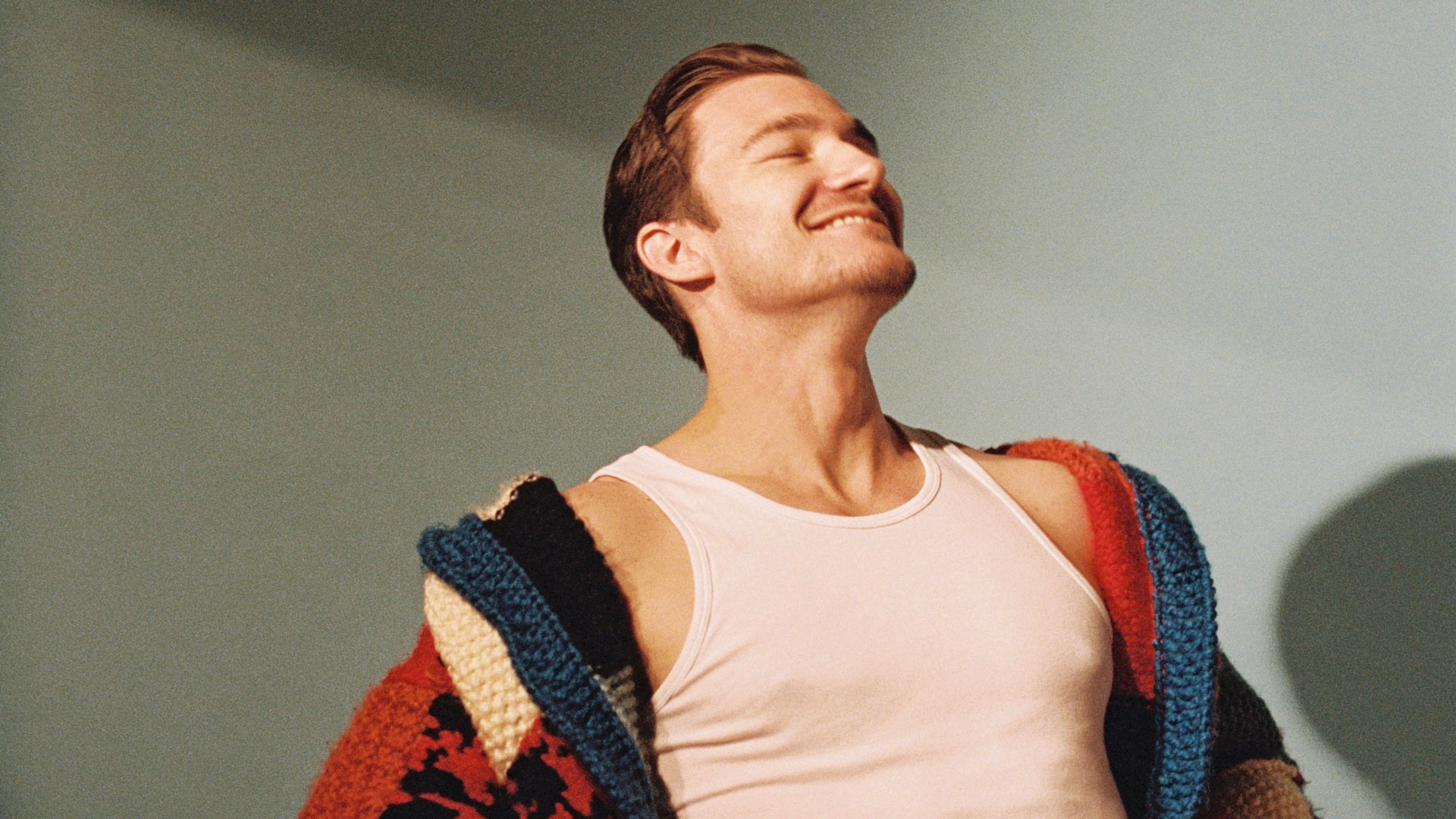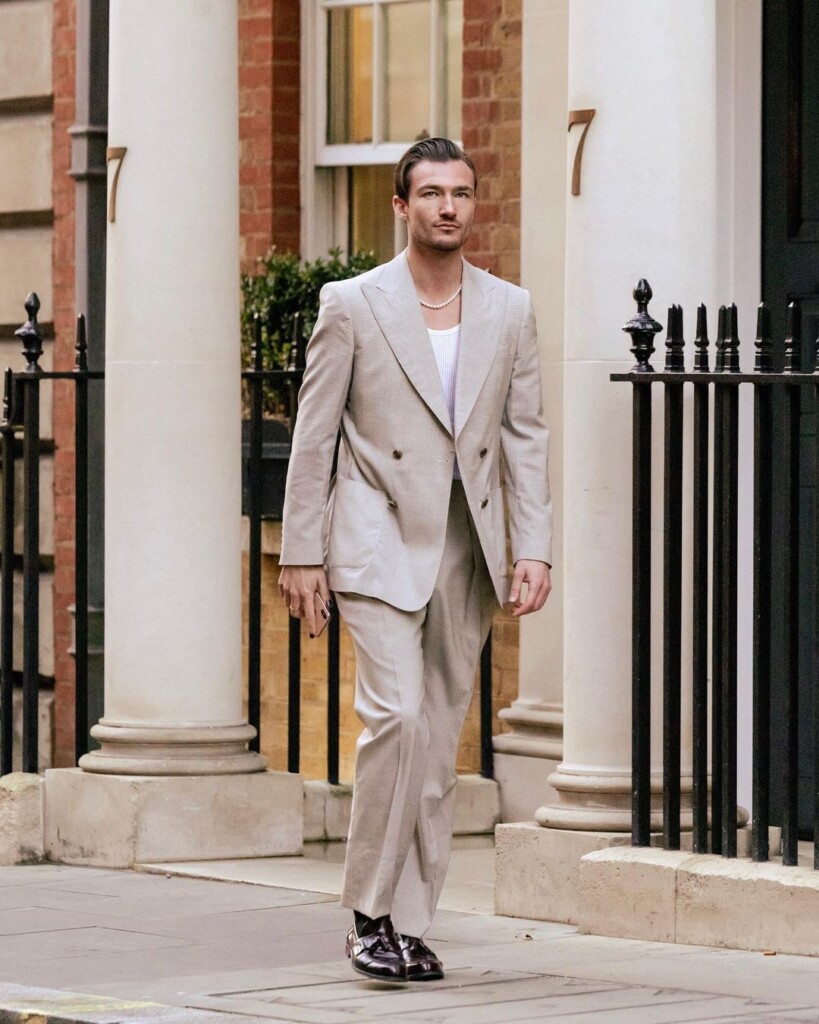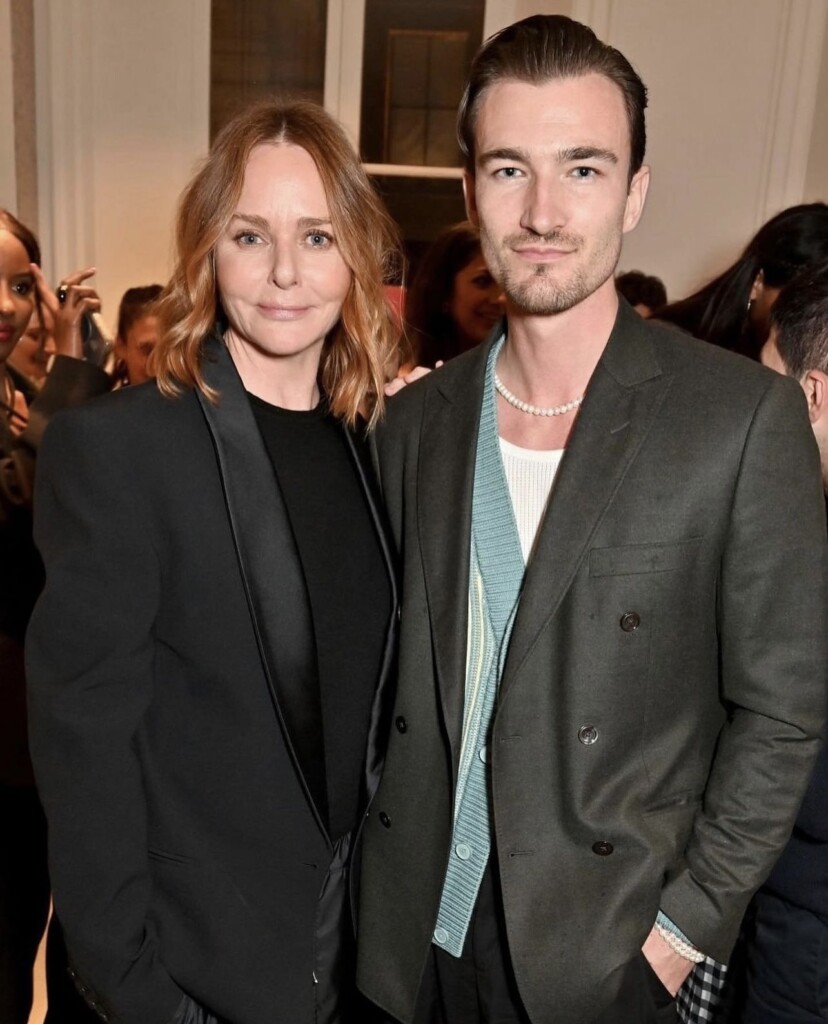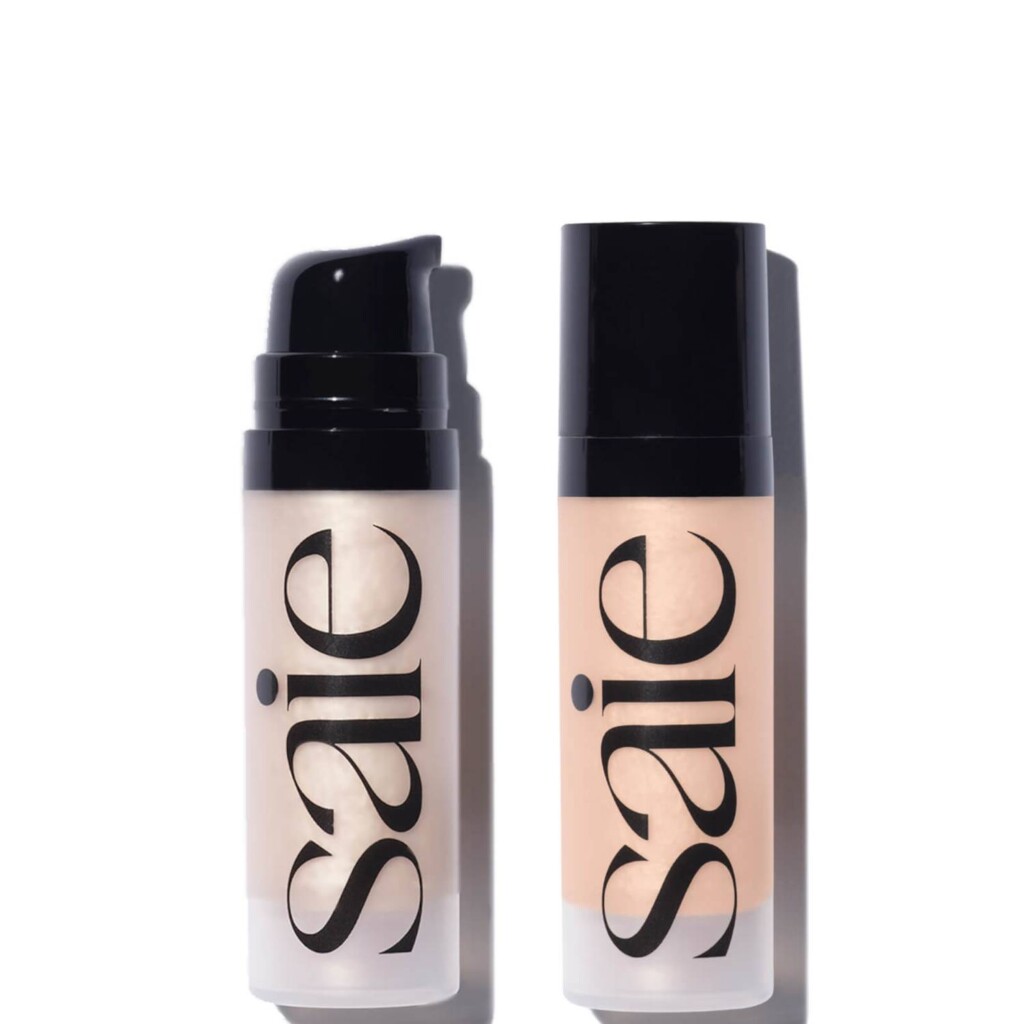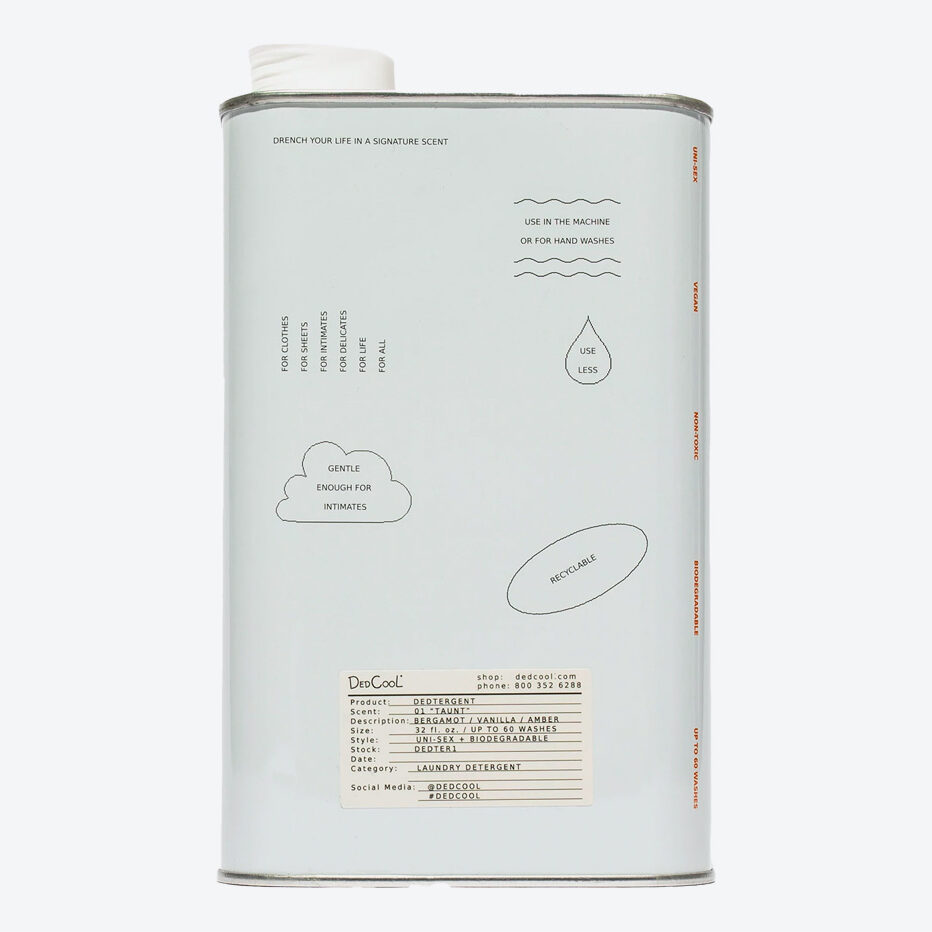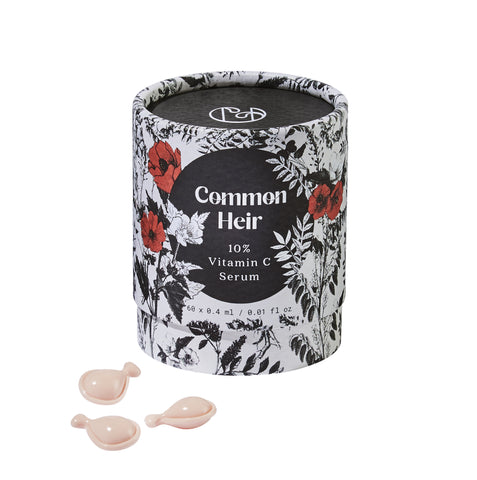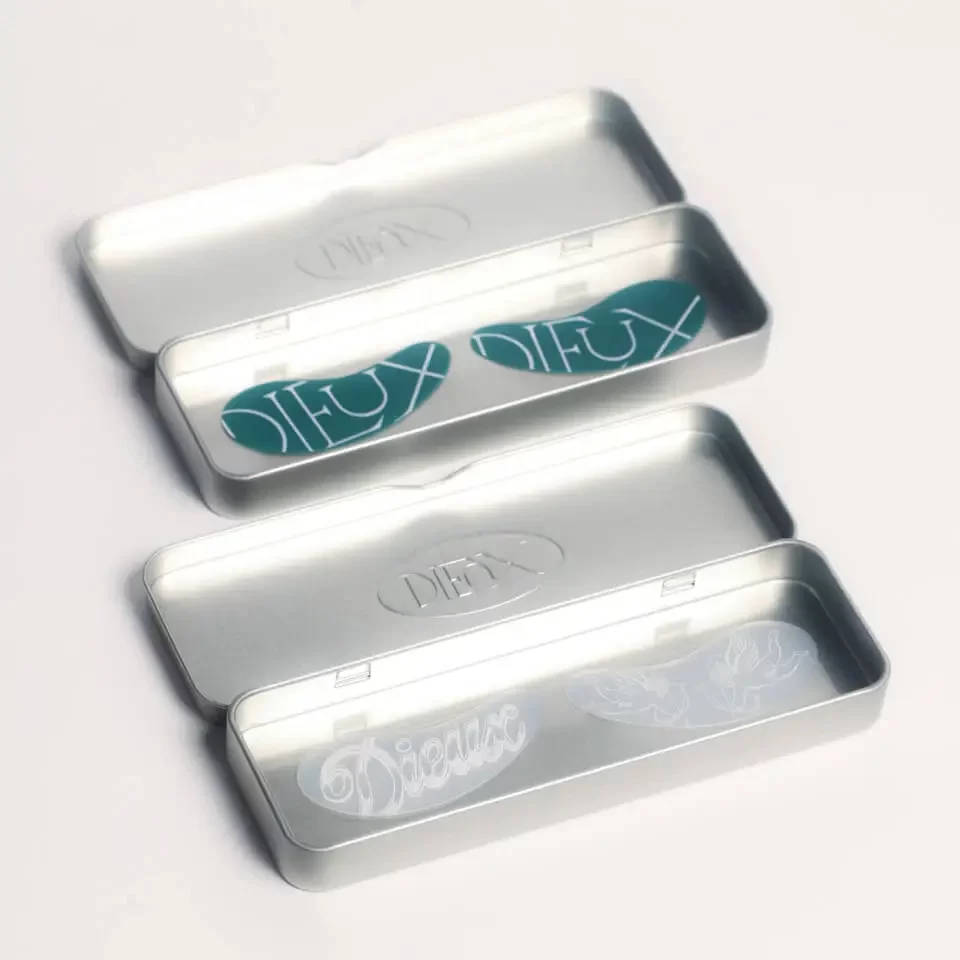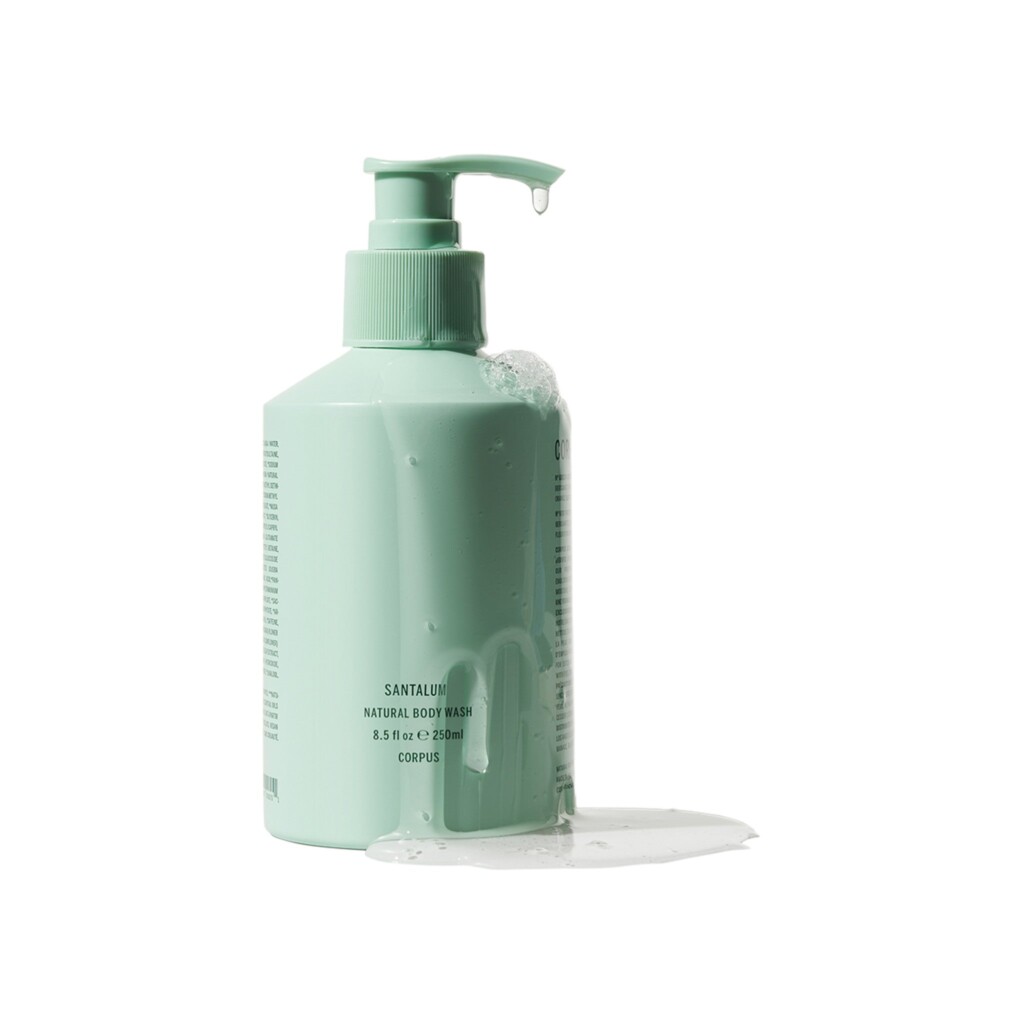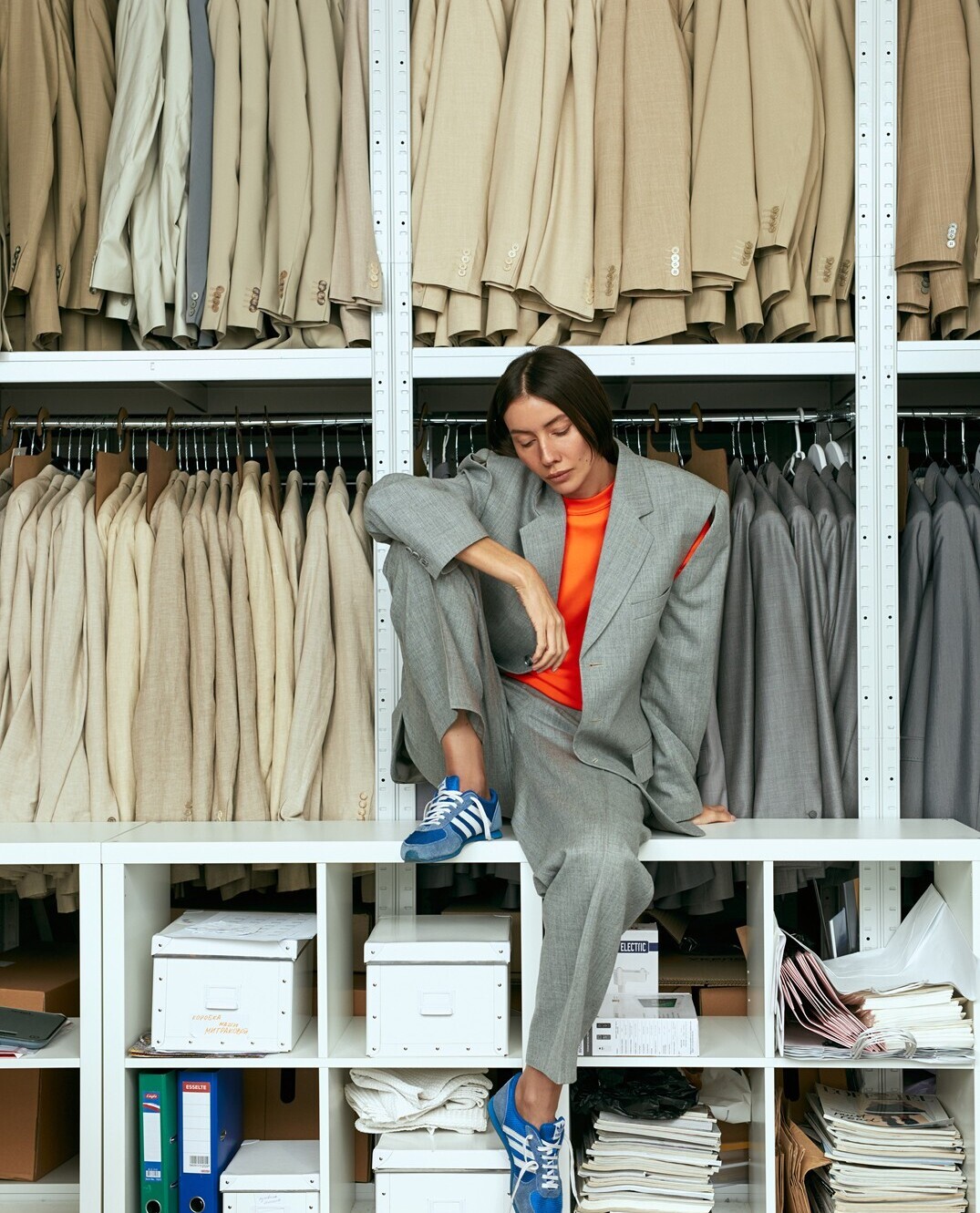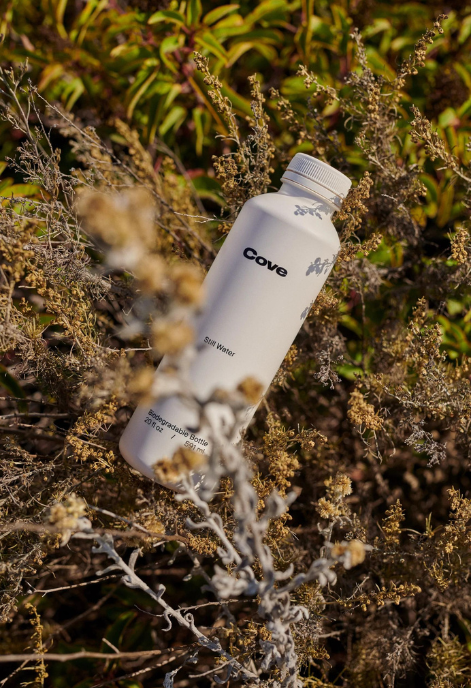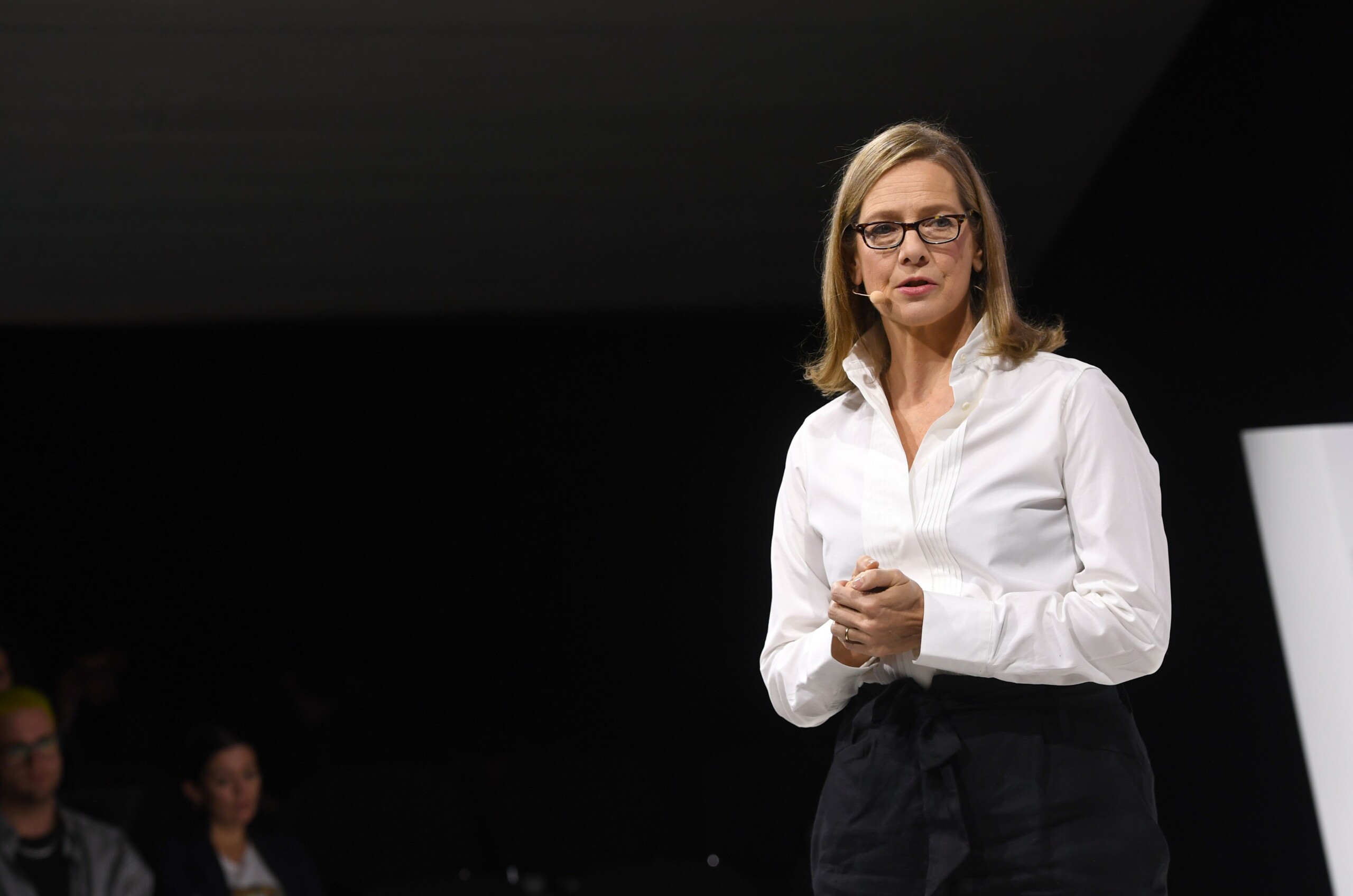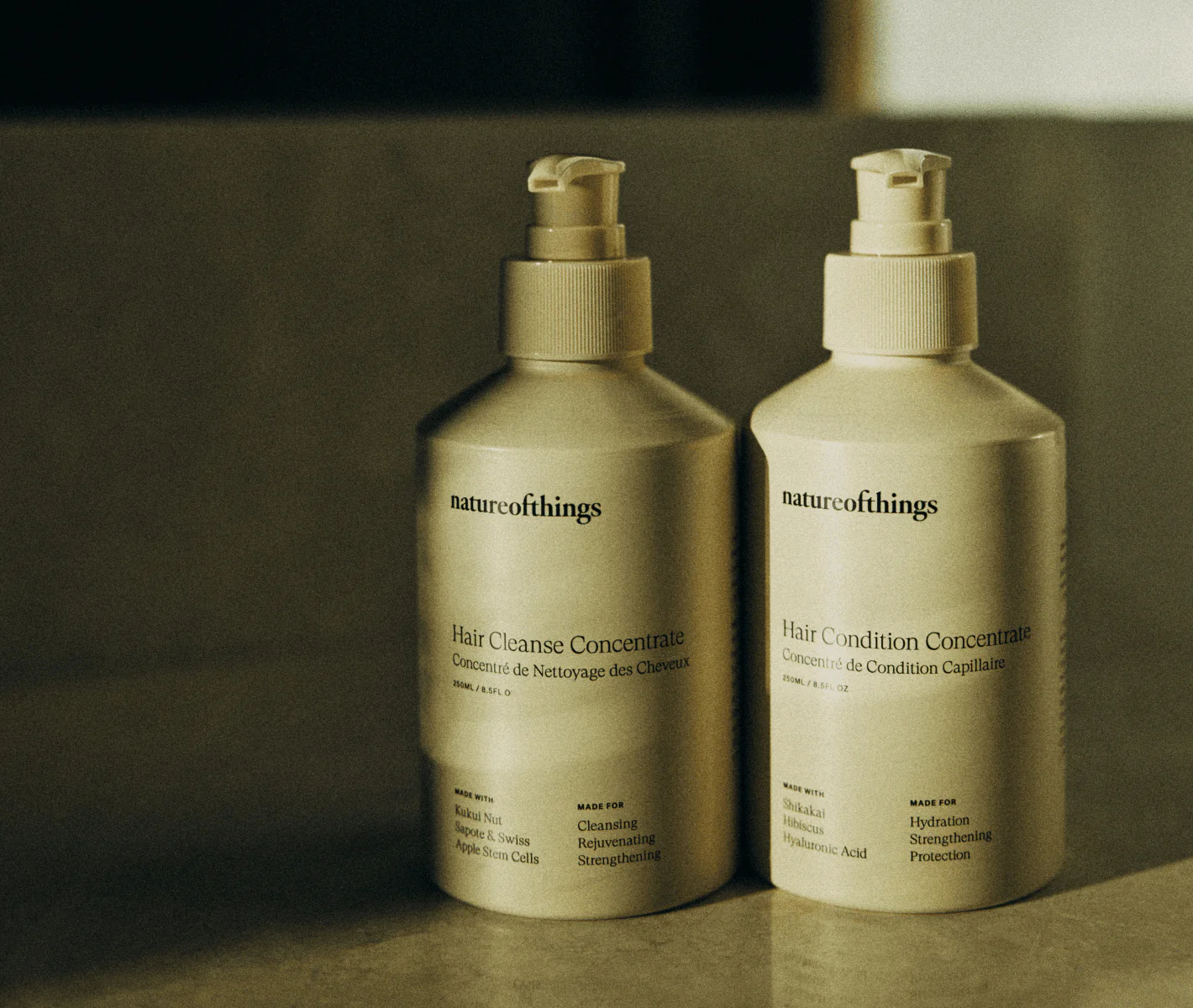the unwash: exclusive interview
Brett Staniland is a model turned climate activist who focuses much of his work on the human impact of the fashion industry. Formerly, Brett appeared on Love Island and was the show’s first contestant who turned down clothing from fast-fashion sponsors but his choices around this and his activist background were given little airtime due to the competing interests of sponsors. Since then, Love Island has dropped its fast fashion sponsors and is now powered by eBay. Brett’s platform is much of an educational hub to learn about different issues within the climate movement and find inspiration for sustainability within the fashion industry. We sat down to discuss fast fashion, sustainability misconceptions, and how we can start cultivating change.
Could you start by giving our readers some background on who you are and your advocacy work?
I started as a model, I was scouted while talking down the street with my twin brother. At the time I had just started my PhD and from there maintained both careers side by side. Bit by bit I started to become aware of how much waste was involved in the industry. I ended up doubling down on sustainability with my personal work and chose to work with more responsible brands and became active in denouncing the exploitative practices of fast fashion. I took to social media for that and I had a bit of a following at the time from modeling and created a platform where I use it for more of an educational tool. In the last couple of years, I’ve moved into writing and consultancy, really focusing on using my platform in the best way that I can.
How many people came to know you is through Love Island. Now that Love Island has changed sponsors to Ebay since your original appearance do you think you would be perceived differently if you were to have been on the show after this?
Being on the show and watching back the parts that were aired to the public I was thinking about how much they cut out that showed who I am and my values. When I went home people were thinking I’m a big Tory and questioning my political beliefs. Realistically, I’m a big progressive, environmentalist, and activist and when you’re all of those things on a show with a massive fast fashion sponsor they’re never going to air those things because they think it wouldn’t resonate with the viewers. Now, if I were going to go back and do the show it would be a totally different experience because I’d actually be able to talk about fashion and all the things I’ve spent the last decade doing which would be much more easily aired now since they aren’t protecting their main investor in the show which was a fast fashion sponsor.
I think a lot of young viewers would relate to you now as there’s been a shift in perspective on fast fashion, you’d be perceived a lot differently.
There’s been such a shift with people now being interested in second-hand fashion in particular, even on social media there are more and more people doing vintage and thrift store finds which is a massive change. People will come up to me saying ‘Oh my gosh I just found this on eBay and I wouldn’t have found it if it wasn’t for your work.’ Those kinds of interactions have increased massively since the change in sponsors. I think it’s such a great move for a huge show to make a big shift.
“If you’re transparent that your main goal is to make the world a better place then people will get on board.” Brett Staniland, PhD & Activist
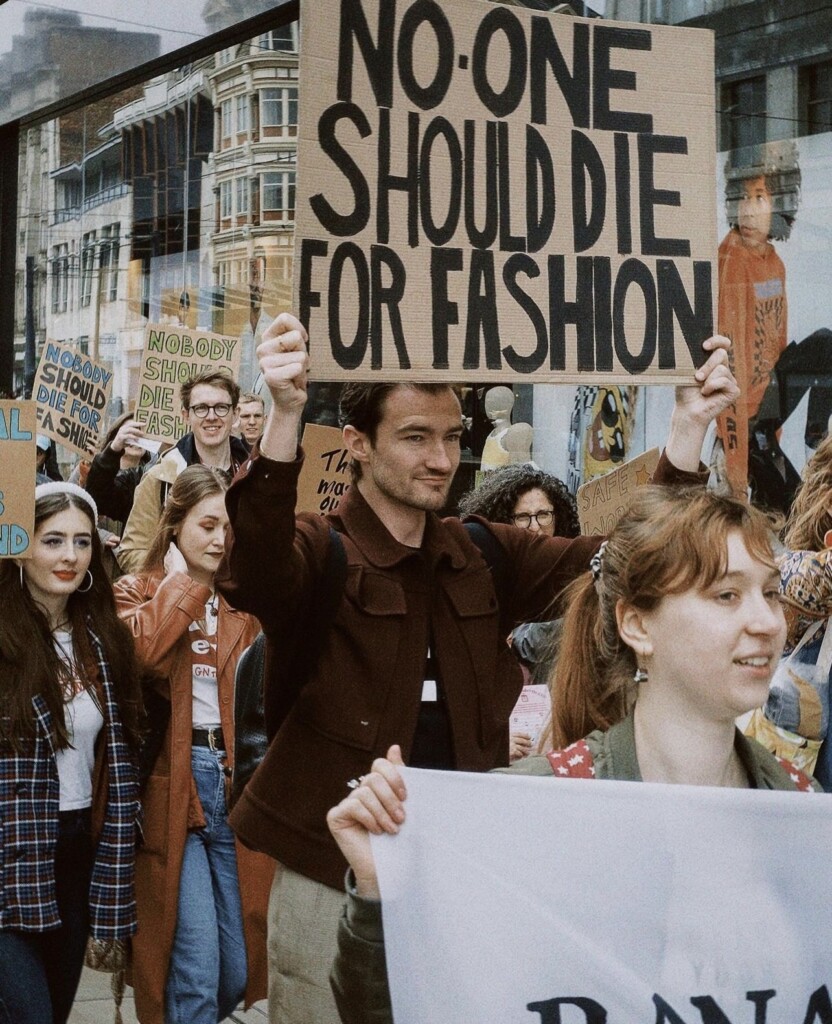
What sparked your original interest in activism and sustainability?
My interest in sustainability was pivotal for me doing the show. I was the first contestant to ever go on and not accept any of the free clothes from the sponsor – being able to do that was pivotal in deciding if I would do the show or not. If I had to wear the sponsored clothes I wouldn’t have done it. From there I started doing protests and being really active against fast fashion. For me there were a few integral moments, mainly learning about people. You don’t connect to your clothing being made by an actual person. I thought if you could connect people with people maybe that would spark something inside them to start to have empathy and compassion to learn about where their clothes come from. That was the main driving force in my activism work being focused on garment workers and their safety. Rana Plaza was ten years ago which was a really big moment that really resonated with me and even now ten years later we can’t with confidence say this won’t happen again.
I feel like I’m getting you at a great time because yesterday the news of Eva Chen’s collaboration with H&M came out. It’s unsurprising when Kourtney Kardashian or Molly Mae and other influencers partner with Boohoo, Shein, or Pretty Little Thing but this comes with more shock in my opinion, how do you feel?
It’s honestly bonkers. I’ve actually written out a comment that I was going to leave on her post. “While everyone in this shoot is very cute and lovely, I’d like to direct everyone to my pinned video about H&M if anyone is interested in greenwashing and what this brand actually stands for.” You’re absolutely right. I expect better from Eva Chen. I think she’s in a position where her persona is someone who is environmentally conscious, family-oriented, and is part of the higher end of the industry so seeing this H&M collaboration is wild to me and I really didn’t expect it. I’m also disappointed in Slow Factory for their involvement and taking on H&M as a client. I understand that Slow Factory has really big goals and targets that they need help to reach. Eva Chen is in a unique position where she doesn’t need fame, she doesn’t need popularity, she doesn’t need financial gains from doing these collaborations so realistically what is her gain by doing it? It’s super disappointing given her audience size as well. I think these people should set a precedent by turning down these jobs. I find myself, someone like me who never really bites their tongue, questioning if I should comment because I use Instagram for work, which I monetized over the last year. It’s challenging to navigate criticizing someone like this. But we have to be in a place where no one is immune from criticism. I’ve been toying with the idea of doing a video about it because it is such a disappointing move, especially given the H&M findings this year from the Swedish news outlet. So, it just seems like she’s succumbed to their greenwashing schemes.
H&M is an interesting brand as they often come out unscathed from the general fast fashion criticisms, seemingly flying under the radar in comparison to Zara, Boohoo, or Shein which adds extra dangers to the collaboration.
They are so good at greenwashing and the aesthetic they provide by being a Scandinavian-based company that is usually connected with more environmentally conscious people and communities. This collaboration has a bonus as it revolves around children because it feels uncomfortable criticizing the campaign. I think H&M is one of the best in the world at greenwashing. If you go into their stores you see green or white tags making you subconsciously think they’re more sustainable. They also have a way of making people think they’re transparent through the way they market but really they’re not.
How do we as people with an interest in climate consciousness combat these collaborations and the noise from fast-fashion brands?
It’s tough because we’re trying to make something that doesn’t fit into capitalism, fit. That’s the bottom line. Fashion is our vehicle to relay information on sustainability and climate change. There are so many different conversations within the fashion industry that all come together. I think the best thing we can do is have a collective voice and almost a union within our industry. I also believe there comes a time when we might have to go on the inside of these brands to hold their hand and help them change. Some of these brands I don’t think should be allowed to get that privilege to get our help such as Boohoo, Amazon, H&M, and Zara, these billion-dollar corporations don’t deserve our help. Having a collective or group of people where we ask each other’s opinions on things going on is a good place to start. If you’re transparent that your main goal is to make the world a better place then people will get on board.
What should people look out for when deciding they want to purchase a new item? What brands do you think are positively aligned with the climate movement?
Before I look for a new piece I look at my wardrobe and ask myself, ‘Do I have a piece that will already satisfy my need?’ and I think about the longevity of the items. Once I take all of that into consideration I look at whether it’s made of natural fibers, which is what I typically only buy, or if it’s a brand I feel aligned with. The shirt I’m wearing is one of the only new things I’ve bought this year and it’s from Zegna who as a brand have been around for years and have been always doing things in a great way which now would be considered sustainable. I typically look for things that are earth tones, not made for any specific season, and aren’t trend pieces. I think these are things everyone should try to consider.
There are a lot of brands that have been around for such a long time but are often the ones doing it the best because it’s been ingrained in their values since day one but now is a bigger conversation piece. What is a common misconception about sustainability and sustainable fashion you run into with your work?
One is that people expect something to be perfect and it never is. Perfectionism and sustainability are a big challenge. People don’t understand the industry and expect perfection. Everyone and every brand is on a journey so we can’t expect something unrealistic. One I get on Instagram is people saying ‘Well you filmed this on an iPhone and guess where they’re made’ and that’s someone trying to make a point that detracts from the statement I’m making – trying to make me look like a hypocrite but it doesn’t make the things I talk about any less true.
I was listening to a podcast that you were on where you were talking about how people think sustainability is this granola aesthetic where people are wearing only flowy clothing, being a hardcore vegan, and having a persona that is deeply entrenched in this. Is that an idea people often come to you with?
This has been the longstanding association, it’s this weird vision that people think of when you say you’re into sustainability or a climate change advocate. Realistically you can be someone who is into fashion but also dedicated to sustainability, look at Glenn Martens who’s the designer at Diesel. I had a conversation with him where he talked about wanting to improve the brand yet when you think of Glen Martens that association people have of the sustainable aesthetic isn’t what comes to mind. I think this is part of why people are scared to label themselves as a climate change or sustainability advocate because they think ‘I’m not perfect enough to commit to that’.
In your daily life, what does sustainability look like for you? Are there any aspects of sustainability that you struggle with?
Day to day everything I do I try to do it locally. Since I live in London there’s a lot of accessibility to local shops or groceries. I don’t need a car since there’s loads of public transportation. There are small things in my life that I looked at and thought, ‘What are these things I’m doing the most that I could change?’ I like to live in the most minimal state possible that still is functional and expressive which is something that has come through a lot in my fashion sense and style, being very utilitarian. Everything has a purpose and meaning.
Are there aspects from your routine that sustainability beginners can adopt to start making changes in their own right?
Look at what you buy the most of and see if you can get a better version of it. Years ago I’d be buying t-shirts for 7 pounds from H&M and going through easily one a month at university. Now I buy one that’s three times the price that will last me more than six months or a year, and I have shirts that are three or four years old. Looking at those frequent purchases and finding a way to do it better makes such a significant difference. Always ask yourself if you need it and take ownership of your decisions.
Social media has made it difficult for people to take a moment and think ‘Do I really need this’. You’ll see something and at the moment think it’s something you really want. You can buy it in one click and it adds no value to your life. It’s just another piece of clothing that doesn’t have longevity. Which is exactly what these companies want.
They’ve taught us to have such short attention spans and have convinced us that when we see these great deals or offers, it’s time-sensitive and makes us think ‘shit if I don’t get this now I’m not going to be able to get it’. Zara is amazing at this which makes their fast-fashion business slightly different from everyone else. If you go in the store and don’t buy something it’ll be gone immediately because they change their stock so frequently. Then the next time you go in you’ll think ‘I have to buy this now because it’ll be gone’, reinforcing that every time you go in you have to buy what you see which is prevalent on social media as well.
You really have to rewire your brain to not lean into those urges.
You have to completely backpedal to what we used to be like. Growing up in a working-class family I almost feel lucky that I didn’t have that desire to constantly be getting something new. Since we didn’t have loads to spend it really made me think that if I’m going to buy something, it needs to be good and as I got older I had to revert to that thinking – if I was buying a polo shirt for 50 quid I had to hold onto it.
Are there any projects you’re currently working on that you’re looking forward to?
I can’t talk yet about something that’s coming out next year but it’ll be really exciting. I’m working on a book which is exciting for me, it’s an anthology. The premise of it is to essentially show people that we can have loads of roles in the fashion industry that already exist but in a more responsible way. If you want to be a consumer, an author, a designer, or a stylist, we can have all these roles that can be just as creative and fun but can do them all in more responsible ways. I’ve been talking to different experts and friends who will be featured throughout the book on these topics.
Are there any other people in the industry or online that you’d suggest people look into for other sustainability resources?
I’m passionate about being positively influenced online so I’d like to shout out what I’d call the good influencers, my brother @twinscott, Aja Barber who is a brilliant author and a great person to follow online, and on Patreon, Venetia La Manna talks a lot about garment workers, @laurenthesunflower. I have a diverse group of people in my circle so I get a great mix of news and education. People like Aditi Mayer, who’s brilliant, and Lucy Sieglel. There’s more but these are some good ones to start.
Sustainability can be a taunting topic to begin diving into but Brett has found an ability to provide insightful information about such a large topic that is easy to digest. If you’re wanting to learn more about Brett or stay updated on his work you can find him on Instagram @twinbrett. Climate activists come on a broad spectrum even in the fashion industry. We’re at a point where meaningful change is necessary and positive voices such as Brett’s are needed at the forefront of the movement.
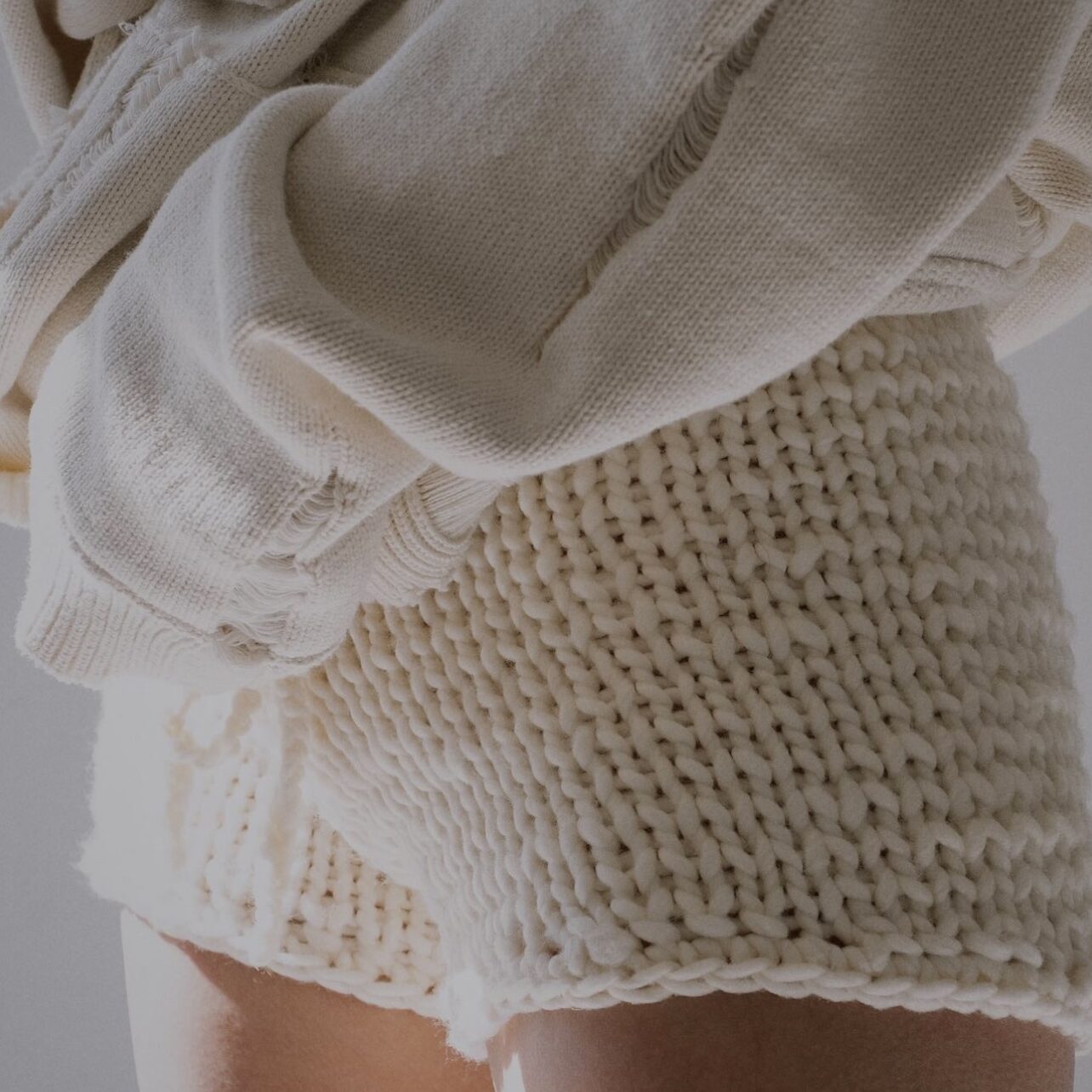
01
Suss Knits
The mother-daughter duo behind Suss Knits is committed to slow and small batch fashion and keeping their manufacturing process as low waste as possible. Intending to create a knitwear line focused on sustainability, ethical production practices, and inclusivity, Suss is creating knits to be enjoyed by everyone. Inspired by their Swedish heritage, 80’s grunge, and inspiring individuality, the brand capitalizes on knit as an art form.
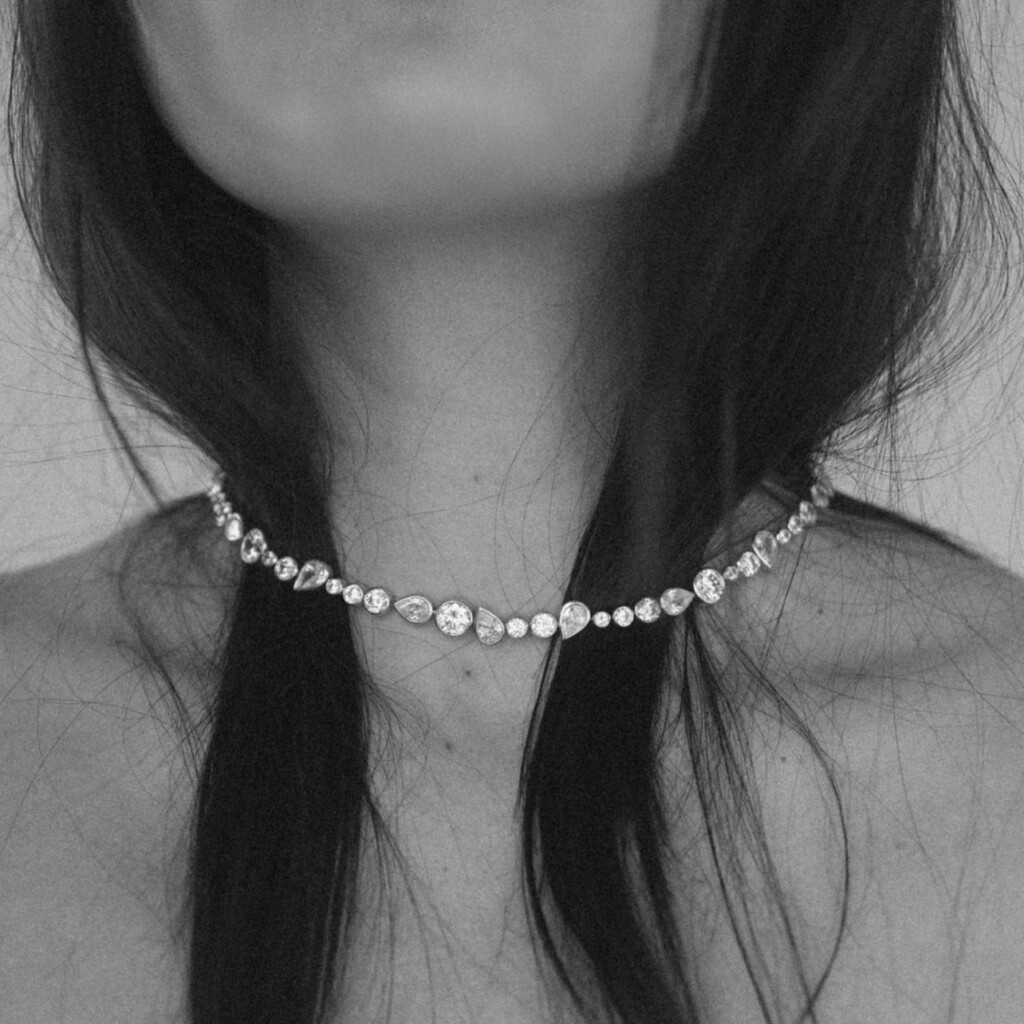
02
Completedworks
Completedworks uses reclaimed, recycled, and ethically sourced materials such as marble, glass, bio-resin, and silver. The brand proves you don’t have to compromise design and style for sustainable practices but rather that the two can work in harmony to create timeless, wearable pieces. Sustainability is at the core of the brand’s ethos and the brand is committed to ensuring there is little to no negative environmental impact resulting from its products or shipping process.
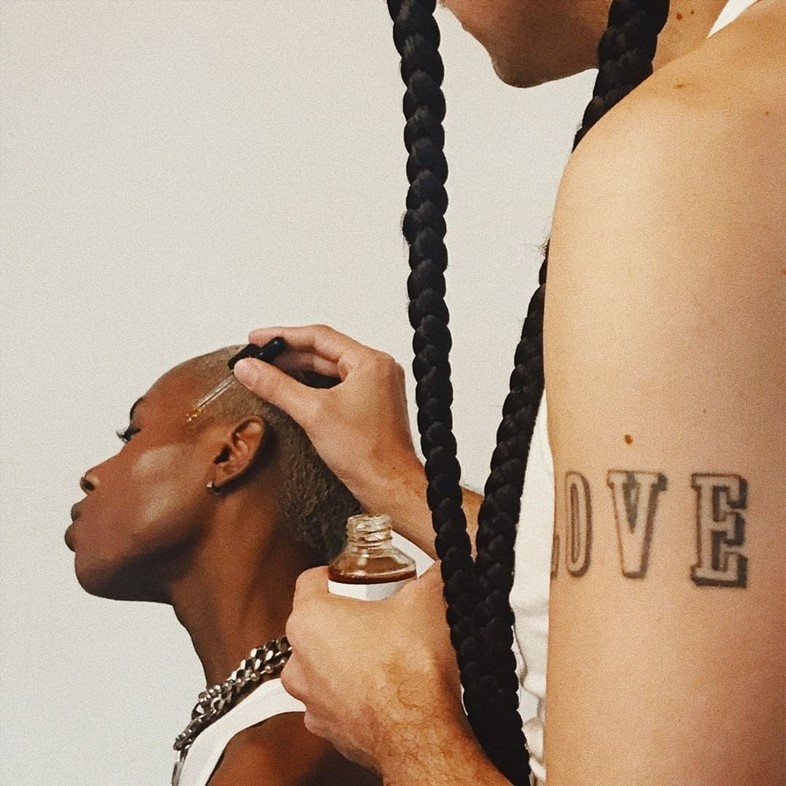
03
Noto Botanics
Noto Botanics is an inclusive skincare and beauty brand that is focused on making an impact, especially in the LGBTQIA+ community. The brand is multi-use for an array of skincare needs with its minimalist, streamlined product line. Their line includes moisturizers, serums, cleansers, and lip and cheek tints. Noto Botanics is just as much about its products as they are about its mission. The brand’s DNA is rooted in inclusivity, community, and giving back.
